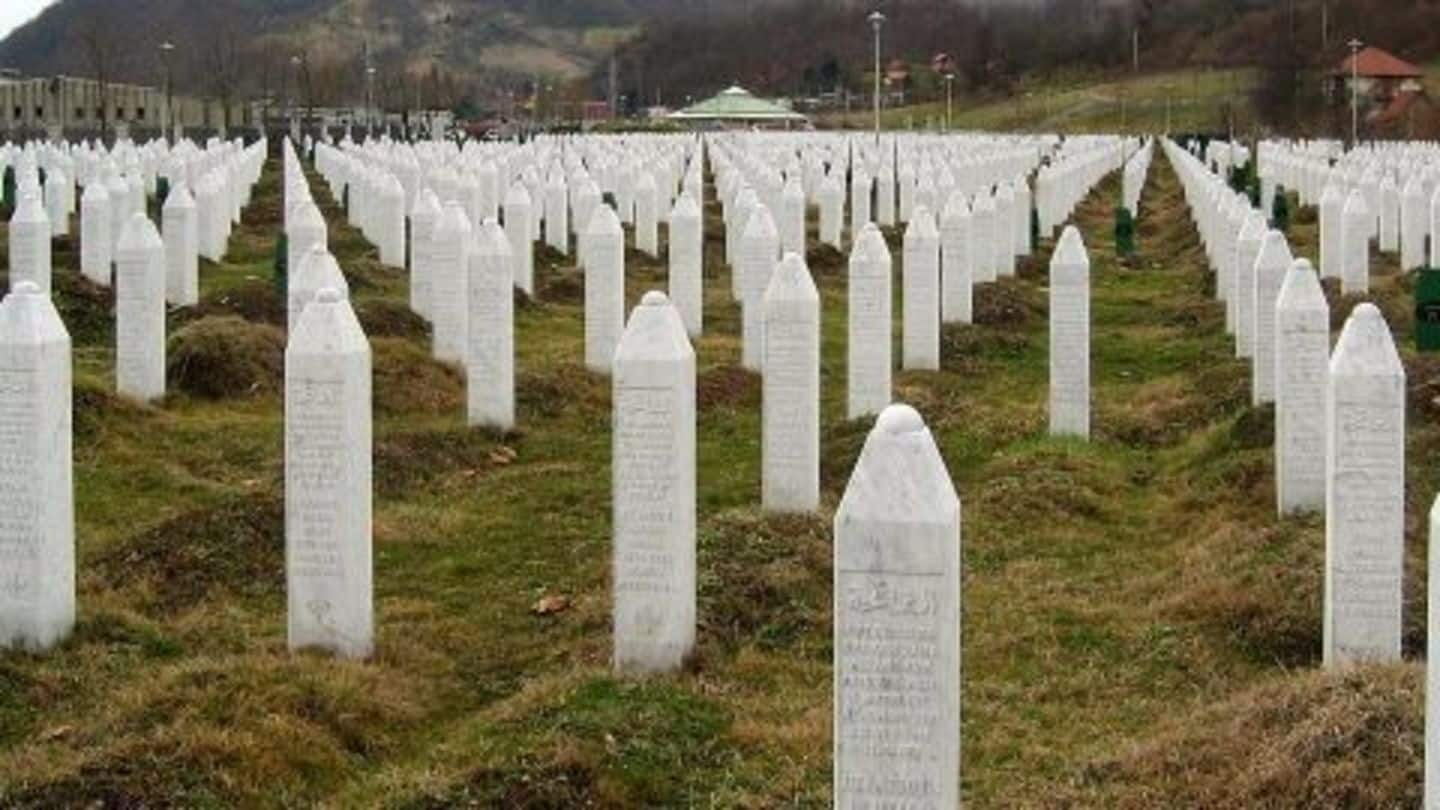
Commemorating the Srebrenica Massacre
What's the story
Thousands of Bosnians prepare to mark the 20th anniversary of the Srebrenica massacre in Potocari. Funeral services will be conducted for the recently identified bodies of 136 victims. Bill Clinton, US President at the time of the massacre along with Turkish PM Ahmet Davutoglu and Serbian PM Aleksander Vucic will attend the commemoration ceremony. Commemorations were banned in Serbia after warnings from right-wing groups.
Jul 1995
The genocide that killed thousands
The Srebrenica massacre of July 1995, involved killing of close to 8000 Bosniak Muslims - boys and men by Bosnian Serb forces in the town of Srebrenica, Bosnia. This occurred in a UN designated 'safe area'. The massacre was conducted in the name of 'ethnic cleansing' and is considered the worst episode of mass murder in Europe after WW II.
Aug-Nov 1995
Reburials in secondary and tertiary gravesites
Between August and November 1995, there was an organized effort to remove the victims of Srebrenica massacre from primary mass gravesites to rebury them in secondary and tertiary gravesites. The trial chamber at International Criminal Tribunal found that the reburial effort was an attempt to conceal the evidence of mass murders. The missing persons are being identified over the years through DNA analysis.
16 Nov 1995
Indictment of Radovan Karadzic and Ratko Mladic
On 16 Nov 1995, Radovan Karadzic and Ratko Mladic, who commanded the Bosnian Serb military forces responsible for massacre, were indicted by the International Criminal Tribunal. They were alleged to be directly responsible for the planning, instigation, ordering or otherwise aiding and abetting in the planning, preparation or execution of the crimes committed in July 1995 in Srebrenica.
Do you know?
Units constituting former Yugoslavia
Between 1991 and 1992, the Socialist Federal Republic of Yugoslavia was broken down and various countries formed which now include: Bosnia and Herzgovina, Croatia, Serbia, Slovenia, Macedonia and Montenegro.
20 Sep 2003
Bill Clinton unveils the Srebrenica Memorial
On 20 Sep 2003, Bill Clinton unveiled the memorial cemetery for the victims of the Srebrenica massacre. At the memorial, Clinton said, "We must pay tribute to the innocent lives, many of them children, snuffed out in what must be called genocidal madness." "Let us who still live remember our obligation to them, to establish a lasting and just peace," he added.
Information
US role in ending Bosnian conflict
US intervened in the Bosnian conflict and demanded the UN to agree to NATO air strikes. Largely due to the NATO operations, the Dayton Peace Accord was signed by Bosnia, Croatia and Serbia in Nov 1995 to end the war.
2006-2013
Mass grave discoveries, arrests and apologies
In 2006, 42 mass graves were uncovered around Srebrenica. In 2008, war crimes suspect Radovan Karadzic was arrested in Belgrade. In March 2010, the Serbian parliament passed a resolution condemning the Srebrenica massacre and apologized for not doing more to prevent it. In April 2013, Serbian President Tomislav Nikolic apologized for the massacre but stopped short of calling the tragedy a 'genocide'.
8 Jul 2015
Russia vetoes UN resolution on Srebrenica
The UN Security council resolution that described the Srebrenica massacre as a "crime of genocide" was vetoed by Russia. Russian ambassador to the UN Vitaly Churkin, called the language "confrontational" and "politically motivated". While Russia vetoed, 10 members voted in favor and four abstained - Angola, China, Nigeria and Venezuela. Two international tribunals based at The Hague have previously ruled the massacre as genocide.